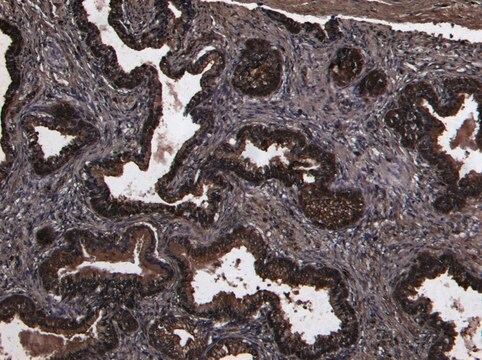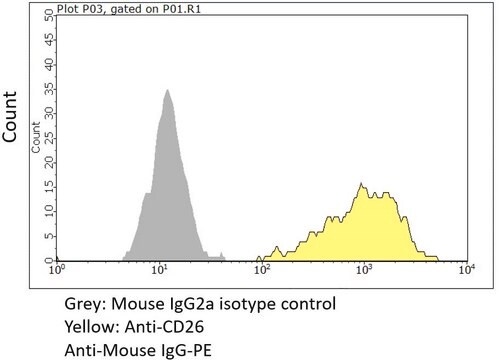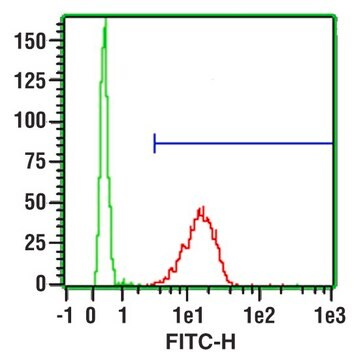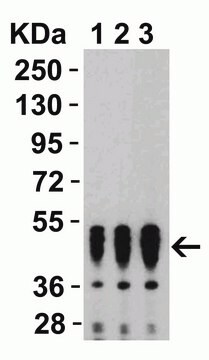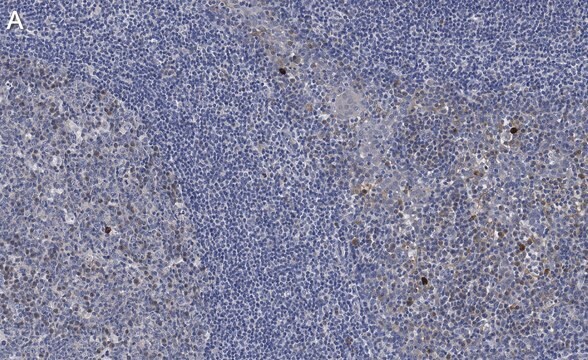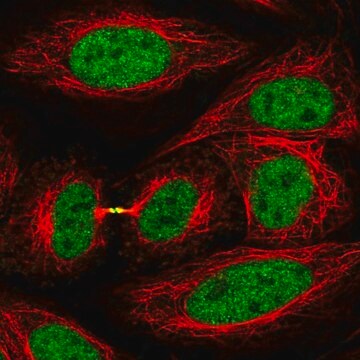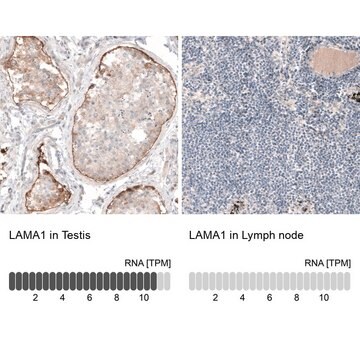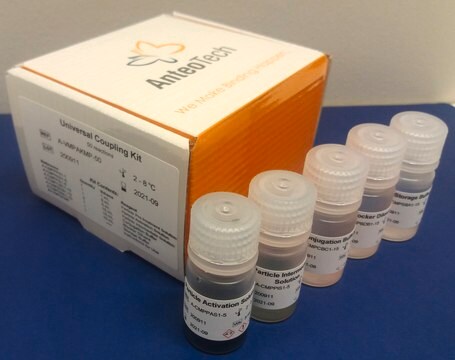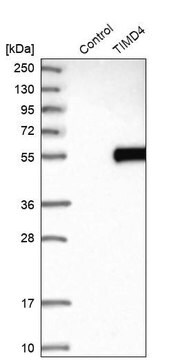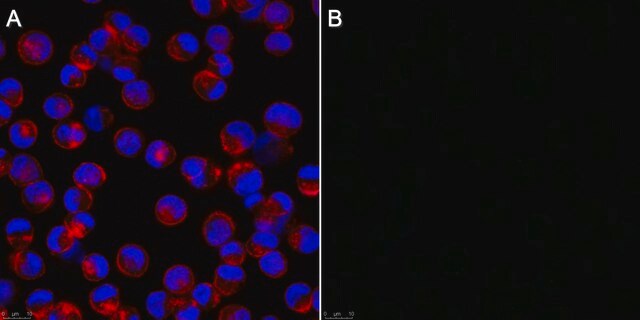推薦產品
生物源
mouse
共軛
unconjugated
抗體表格
purified from hybridoma cell culture
抗體產品種類
primary antibodies
無性繁殖
A6H, monoclonal
形狀
buffered aqueous solution
物種活性
human
濃度
~4.0 mg/mL
技術
flow cytometry: suitable
immunocytochemistry: suitable
immunohistochemistry: suitable
indirect ELISA: suitable
indirect immunofluorescence: 20-40 μg/mL using methanol/acetone fixed HT-29 cells
同型
IgG1
運輸包裝
dry ice
儲存溫度
−20°C
目標翻譯後修改
unmodified
基因資訊
human ... DPP4(1803)
一般說明
Monoclonal Anti-DPP4/CD26 (mouse IgG1 isotype) is derived from the hybridoma A6H produced by the fusion of mouse myeloma cells and splenocytes from BALB/c mice immunized with human fetal homogenates. Dipeptidyl peptidase-4 (DPP4) belongs to the S9B protein family, which cleaves X-proline dipeptides from the N-terminus of polypeptides, such as chemokines, neuropeptides and peptide hormones. It is a type II transmembrane glycoprotein, expressed on the surface of many cell types.
免疫原
human fetal homogenates.
應用
Monoclonal Anti-DPP4/CD26 antibody produced in mouse has been used in:
- enzyme linked immuno sorbent assay (ELISA)
- immunocytochemistry
- immunohistochemistry
- flow cytometry
生化/生理作用
Dipeptidyl peptidase-4 (DPP4) is involved in the regulation of the biological activity of hormones and chemokines, such as glucagon-like peptide-1 and glucose-dependent insulinotropic polypeptide. DPP4 inhibition maybe used to treat type 2 diabetes mellitus. It acts as a T cell activation molecule and regulates immunity and immune-mediated disorders.
外觀
Solution in 0.01M phosphate buffered saline pH 7.4, containing 15 mM sodium azide.
免責聲明
Unless otherwise stated in our catalog or other company documentation accompanying the product(s), our products are intended for research use only and are not to be used for any other purpose, which includes but is not limited to, unauthorized commercial uses, in vitro diagnostic uses, ex vivo or in vivo therapeutic uses or any type of consumption or application to humans or animals.
未找到適合的產品?
試用我們的產品選擇工具.
儲存類別代碼
12 - Non Combustible Liquids
水污染物質分類(WGK)
WGK 1
閃點(°F)
Not applicable
閃點(°C)
Not applicable
Dipeptidyl peptidase-4 (CD26): knowing the function before inhibiting the enzyme
Matteucci E and Giampietro O
Current Medicinal Chemistry, 16(23), 2943-2951 (2009)
Identification of the target of monoclonal antibody A6H as dipeptidyl peptidase IV/CD26 by LC MS\MS.
G M Hass et al.
Hybridoma, 20(4), 231-236 (2001-10-18)
The monoclonal antibody (MAb) A6H, originally developed to fetal renal tissues, was found to be highly reactive to renal cell carcinoma and was subsequently demonstrated to co-stimulate a subpopulation of T cells. The A6H antigen had not been identified heretofore.
R L Vessella et al.
Cancer research, 45(12 Pt 1), 6131-6139 (1985-12-01)
Monoclonal antibodies (MABs) reactive with human renal cell carcinoma (RCC) were generated following immunization of mice with either RCC homogenates, RCC cell lines, or fetal kidney homogenates. The characteristics of four highly reactive immunoglobulin G1 MABs, designated UMVA-RCC-A6H, UMVA-RCC-A36, UMVA-RCC-C5H
Global Trade Item Number
| 庫存單位 | GTIN |
|---|---|
| SAB4200230-200UL | 4061838035509 |
我們的科學家團隊在所有研究領域都有豐富的經驗,包括生命科學、材料科學、化學合成、色譜、分析等.
聯絡技術服務